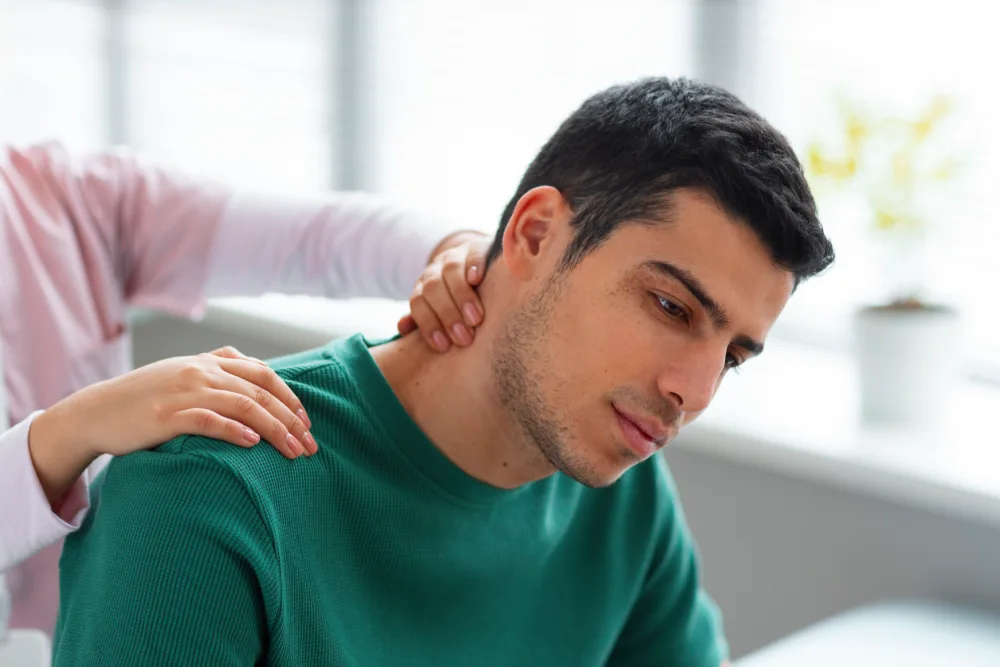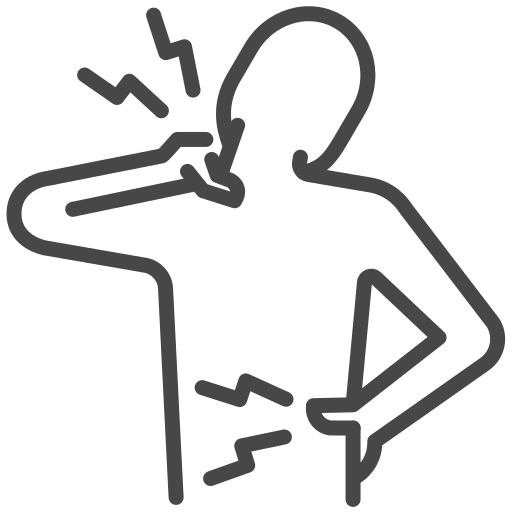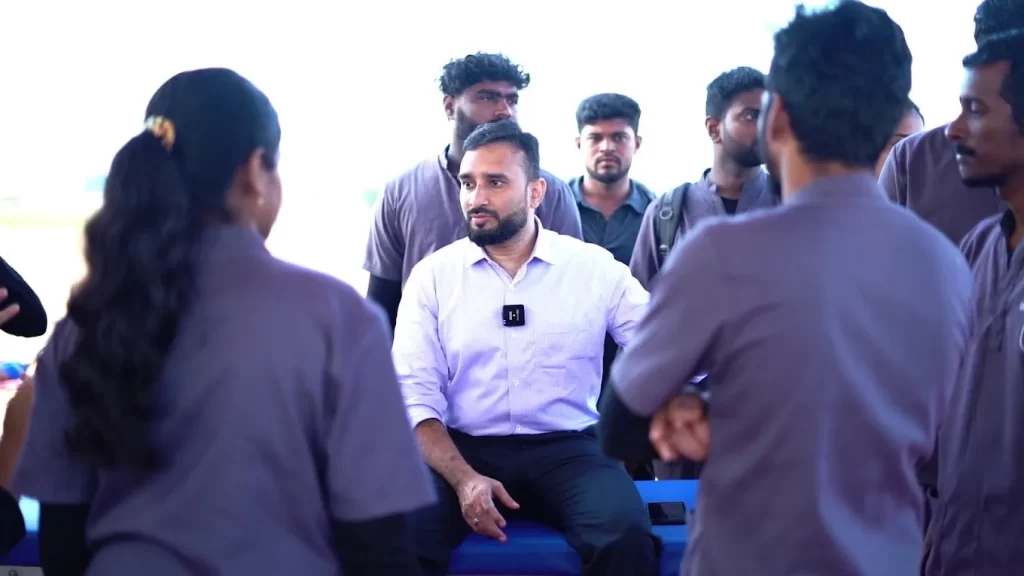Myofascial Pain Syndrome Treatment in Chennai
Myofascial Pain Syndrome Treatment
What is Myofascial Pain Syndrome?

What are the Causes of Myofascial Pain?

Overuse of Muscles
Repeating the same movement too often or putting extra strain on a specific muscle can cause tight, painful spots called trigger points.

Muscle Imbalance
As some muscles work more than others, providing stretch or strain to others, it can result in some muscle aching.

Injuries
Accidents and injuries may damage muscles and trigger the formation of trigger points.

Stress and Tension
When under emotional stress, muscles become stiff and may lead to pain and knots.

Incorrect Posture
Sitting or standing for a very long time in incorrect posture puts stress on muscles, causing pain.

Chronic Illness
Any condition, such as fibromyalgia or chronic fatigue syndrome, that creates increased sensitivity of the muscles can increase the likelihood of myofascial pain.

Issues in Muscle Joints
When there is an issue in joint movements, neighbouring muscles work harder to compensate. Over time, this causes them to become uncomfortable and tight.

Routine Work
Sitting too long, lifting heavy weights, or not moving enough during the day can tire your muscles and lead to long-lasting pain.
Symptoms of Myofascial Pain

A deep, consistent soreness in your muscles

Pain that never goes off but worsens with time

The pain feels like small, sore knots deep in your muscles.

Having trouble sleeping or remaining asleep due to pain

Strong belief as low, weak, or simply not oneself

Even after resting, you feel tired
Effective Treatment Process
1. Trigger Point Injection
2. Physical Therapy
3. Massage Therapy
4. Apply Heat or Ice Packs
5. Dry Needling
6. Ultrasound Therapy
7. Posture Training
Why Choose Dr. Ahamed’s Apple Clinic for Myofascial Pain Syndrome Treatment in Chennai?

